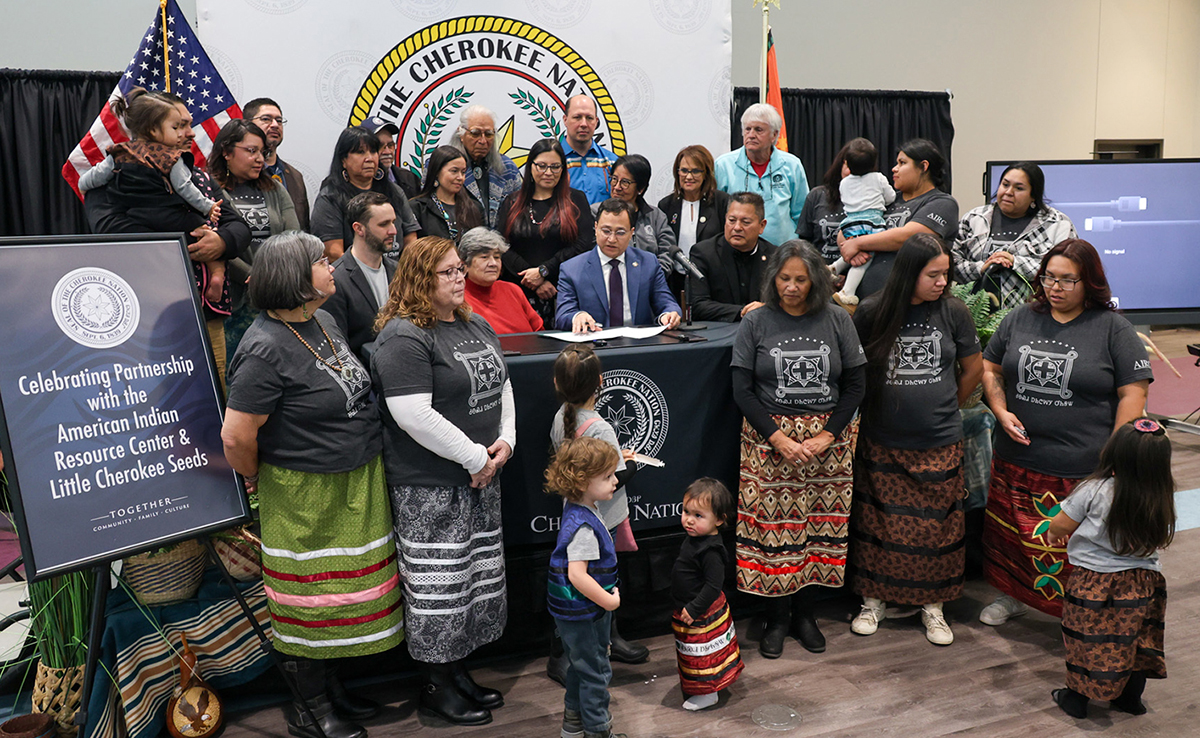TAHLEQUAH, Okla. — The Cherokee Nation is contributing $800,000 in operating, equipment, and capital funds to help foster fluency in the Cherokee language through the Little Cherokee Seeds program, an initiative helping to revitalize the Cherokee language by fostering fluency among infants and their parents through cultural and linguistic immersion.
The $800,000 contribution brings the tribe’s total investment in the initiative to more than $1.3 million since its inception.
“The Little Cherokee Seeds program focuses on creating fluent Cherokee speakers, starting from the earliest stages of life. The Cherokee Language Department, through our landmark Durbin Feeling Language Preservation Act, works on this same goal daily,” said Principal Chief Chuck Hoskin Jr. “Collaborating aligns with our mission of immersion learning and serves as a critical tool for ensuring linguistic and cultural continuity, offering young families the opportunity to engage deeply with the Cherokee language and traditions.”
Aside from funding, the Cherokee Nation has also provided Little Cherokee Seeds with contributions such as the donation of a vehicle and classroom remodeling.
“This really means a lot to Little Cherokee Seeds,” Program Director for Little Cherokee Seeds Melissa Lewis said. “I think even more than the resources, it means that the tribe believes in us and they see the importance of what we’re doing and that we are going to become partners in this goal to revitalize the Cherokee language.”
The Cherokee Little Seeds program is administered by the American Indian Resource Center (AIRC).
“This program works and it’s just a great investment in our kids, in our language and our people,” Speaker of the Council Mike Shambaugh said.
By nurturing fluency through early immersion, the Little Cherokee Seeds program ensures future generations are equipped to carry the Cherokee language forward, fostering a profound connection to ancestral traditions, values, and history.
“Thank you to the mothers and the teachers for what they’re doing, it can’t be described how important and huge it is,” Deputy Secretary of State Canaan Duncan said. “This program is working because it’s a holistic program that focuses on language and different means of learning that language.”

